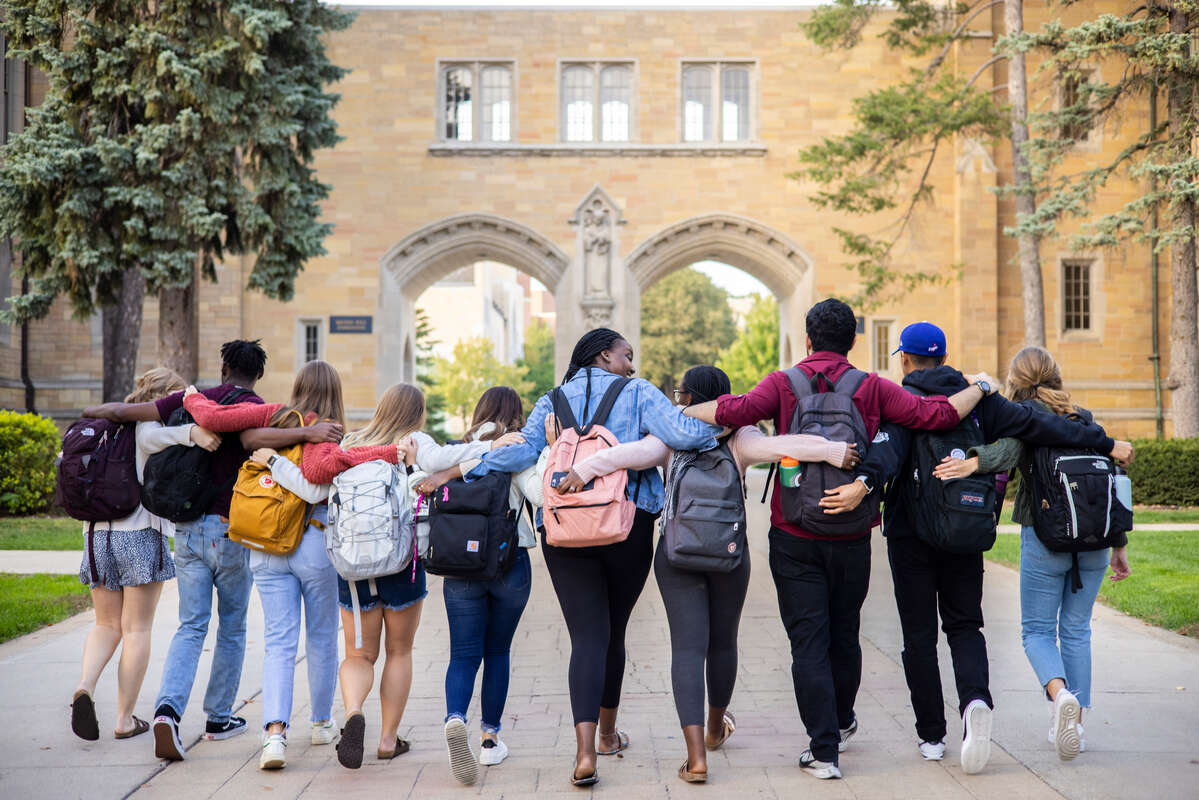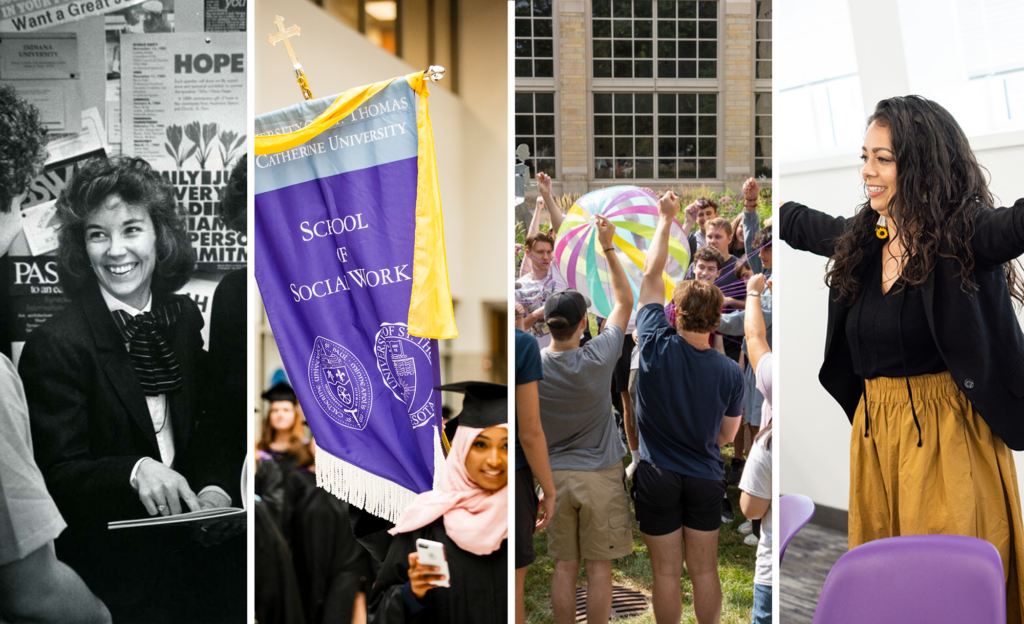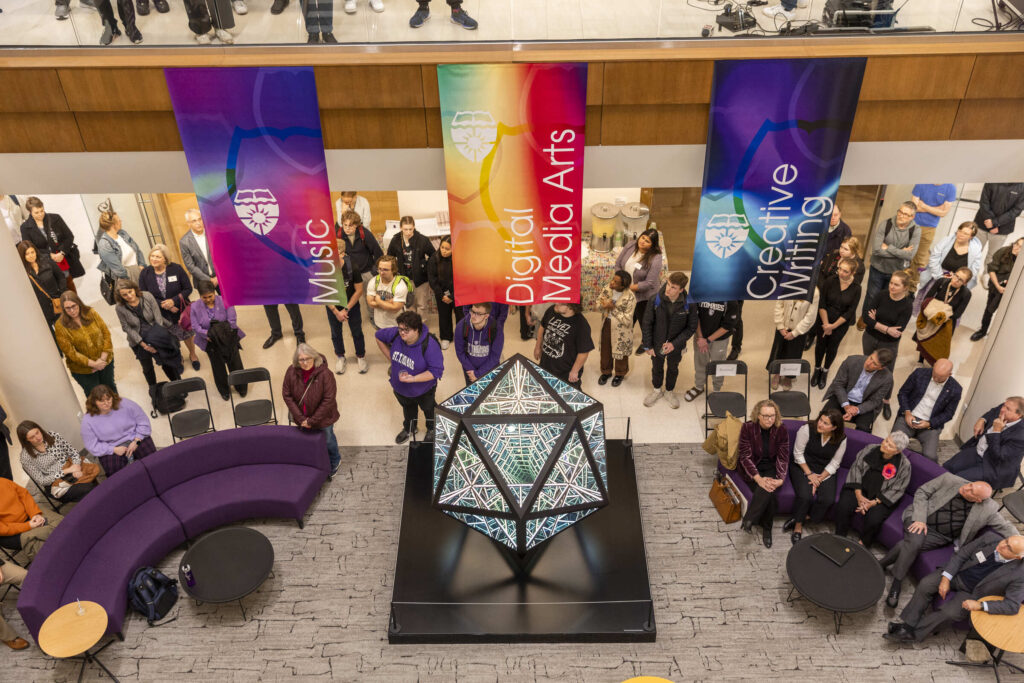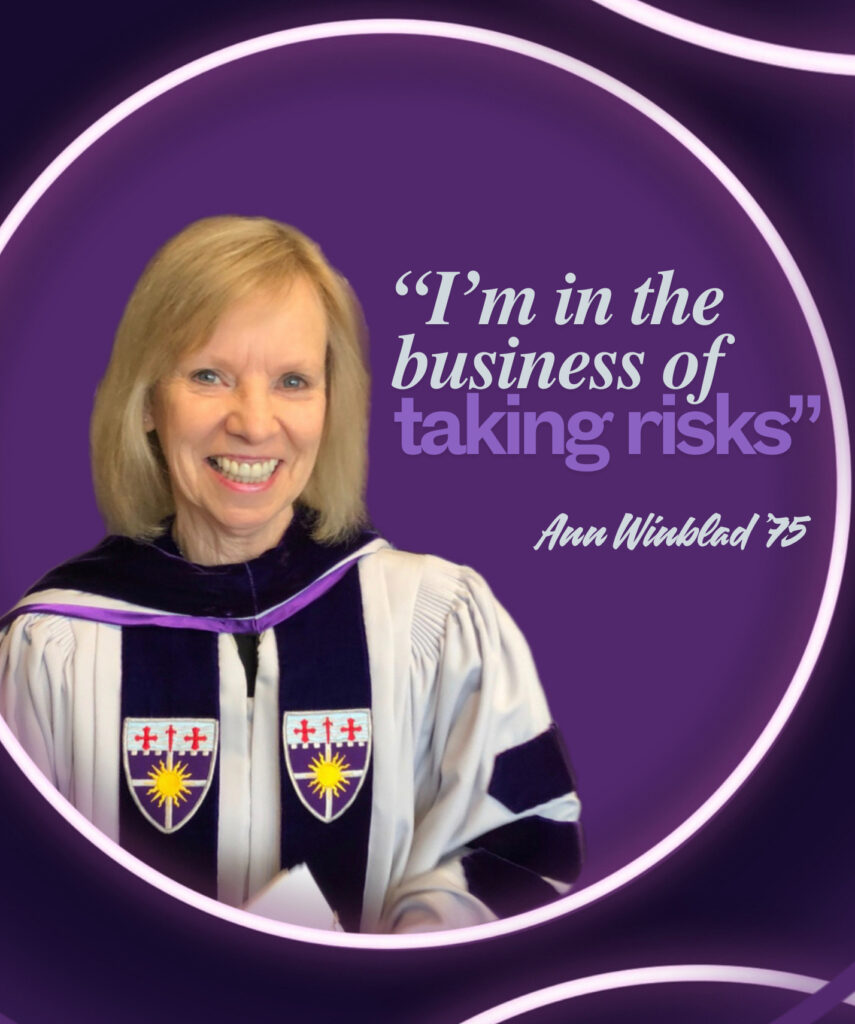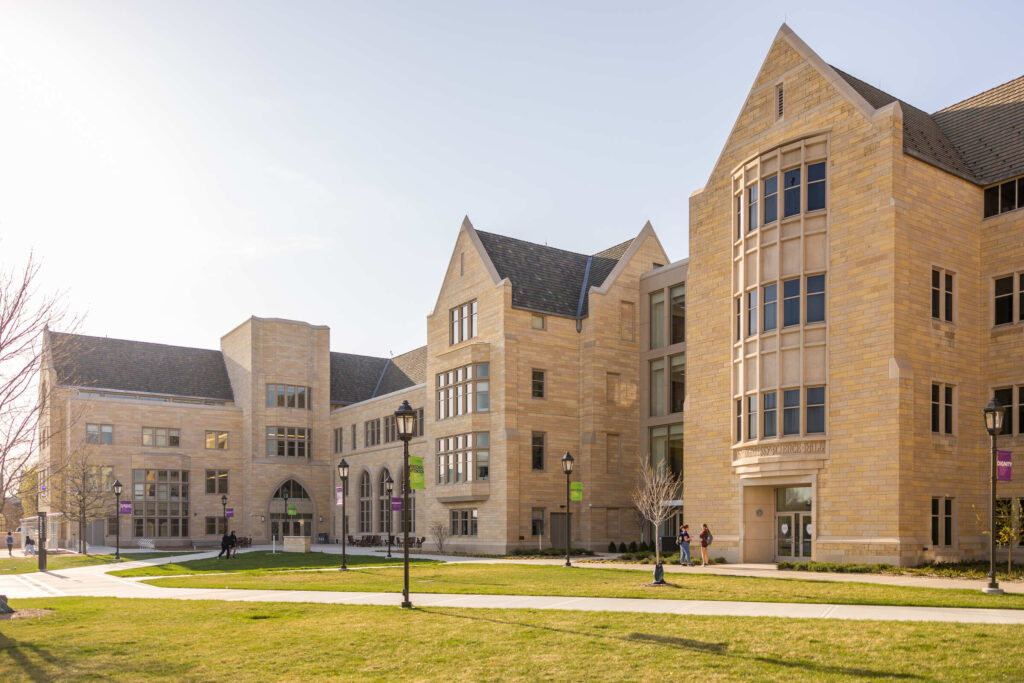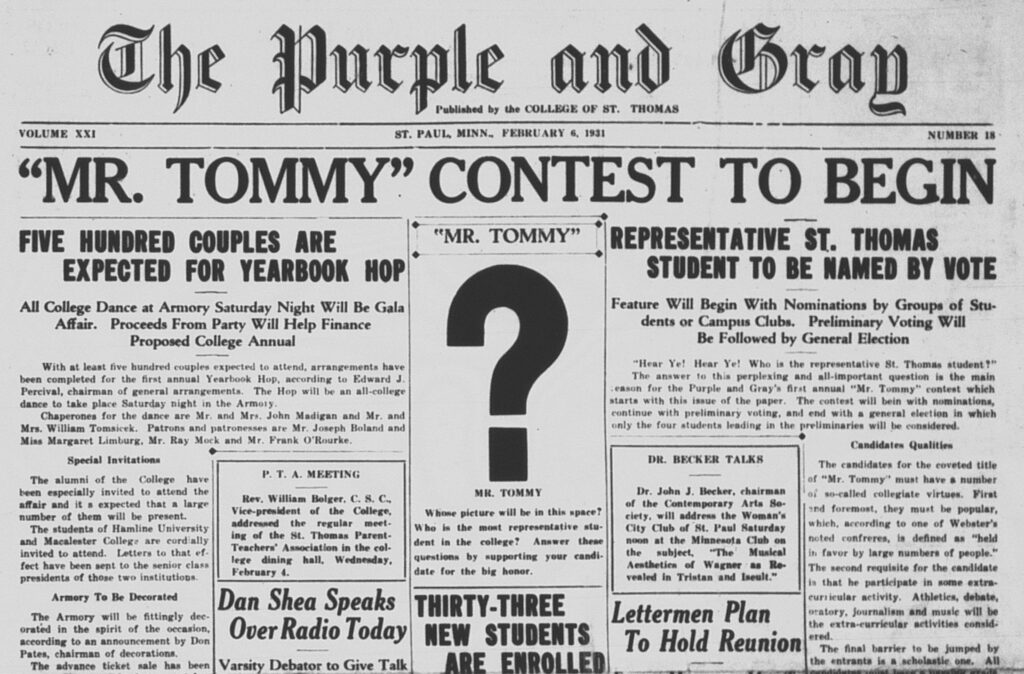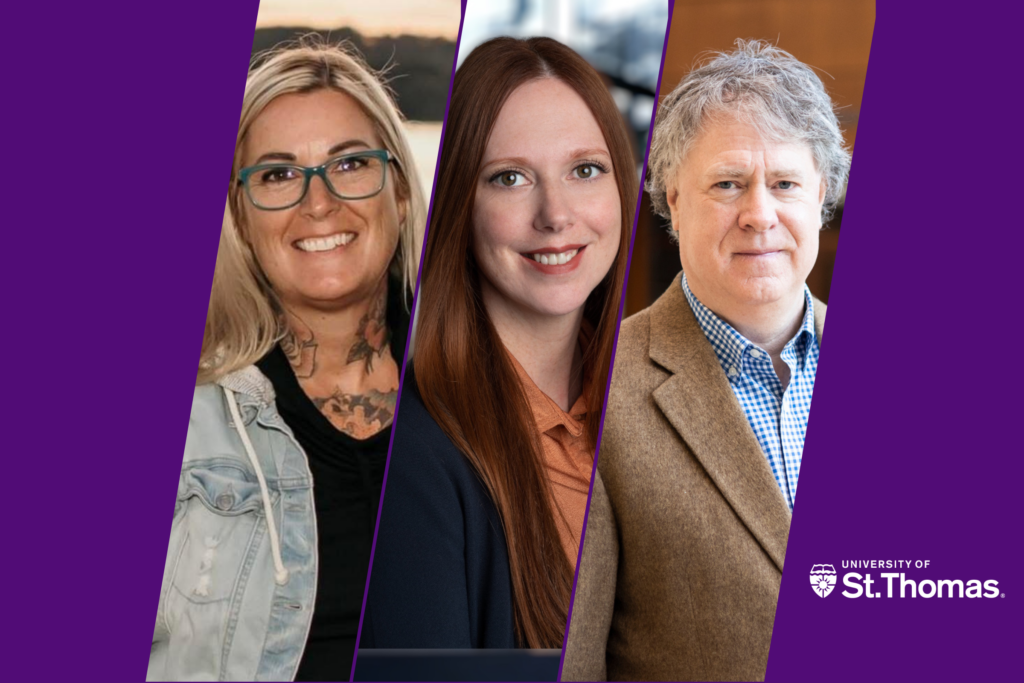As the sixth of seven children, Nancy Lewer ’10 was unsure if college would be a part of her future.
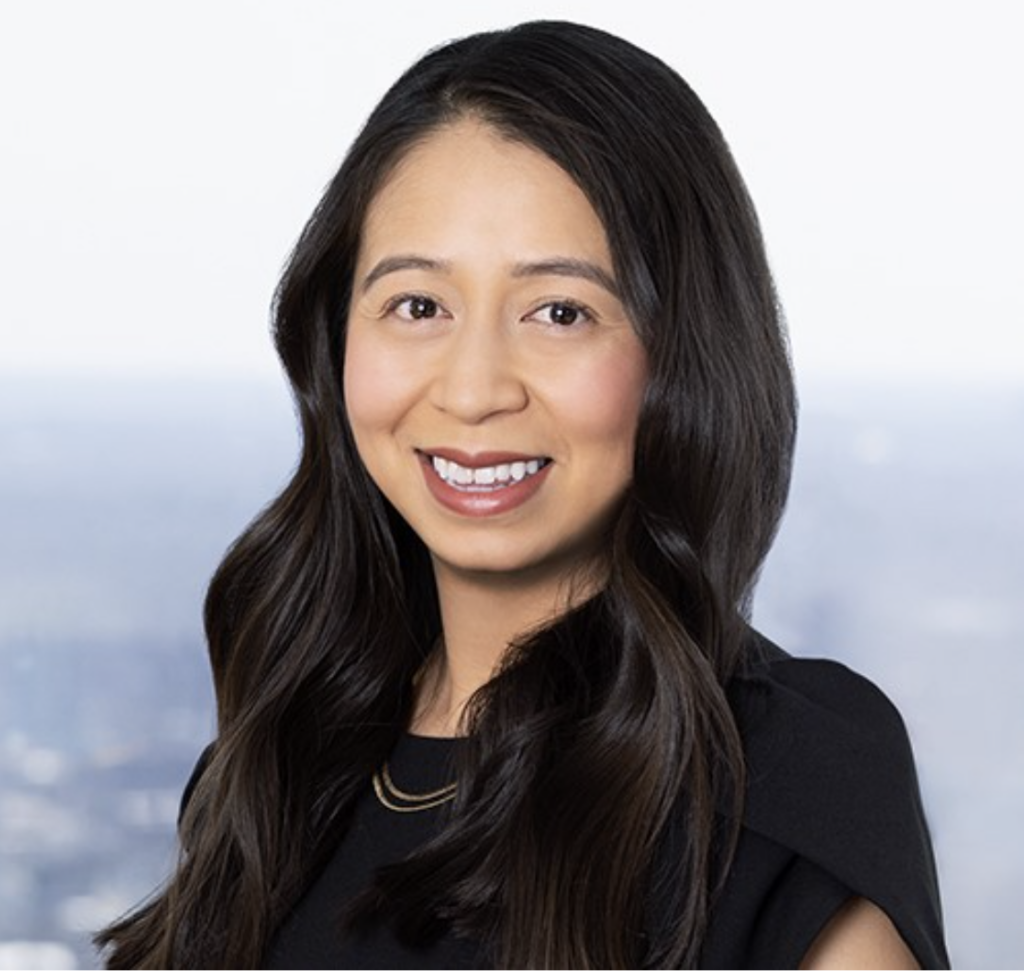
“I remember when I received the scholarship letter from St. Thomas. I told my mom, and she couldn’t believe it. She thought for sure we were going to have to come up with a different plan,” Lewer said. “I told her that I didn’t know who the people are who give. They didn’t see my face or know who I was. The opportunity provided hope and inspiration so that I could go to college.”
Approximately 97% of all St. Thomas undergraduate students have scholarships or other forms of financial aid. Yet, more than 35% of enrolled students still have significant financial need after scholarships, grants, work study and federal loans. The financial aid office at St. Thomas has found that this gap – currently around $10,000 on average per student – can cause students to take on excessive loans, opt out of living on campus with peers, work extraordinarily long hours, jeopardizing their academic success, as well as delay graduation or withdraw from the university completely.
As a result, scholarships represent St. Thomas’ top fundraising priority. There are nearly 70 scholarships listed on the university’s scholarship webpage. Some are based on merit and community or school involvement, and some on need or unexpected hardship. Some are awarded to first-year students and others to returning students, transfer students, international students, veterans and on other niche criteria. They include scholarships from family foundations and those funded by smaller, individual donations, ranging in size from $20 to single gifts in the millions.
Many university alumni recognize that no gift is too small. During the Tommie Give Day giving window every November, for example, about half the donations are under $100. And for the previous fiscal year, a record-breaking $3.35 million was raised during the Tommie Give Day season, with almost every class year accounting for at least one donation. This year, the university hopes to secure a greater number of donations toward scholarships and break last year’s financial gift total.
“The day when all 120,000 of our alumni are giving back to scholarships in some way will be a day of major celebration for St. Thomas,” said Erik Thurman, vice president for University Advancement. “I know it’s coming, because our alumni care about current students who will one day be Tommie alumni, and about future generations to come. When 100% of our alumni pay it forward to scholarships, it's a win for everyone.”
Increasing donations to the scholarship funds is especially important as the university is also on course to further increase its enrollment. For the 2024-25 academic year, St. Thomas welcomed 1,591 first-time, first-year students to campus, the second-largest undergraduate class in two decades. Total enrollment at St. Thomas is at a four-year high, with hopes of surpassing that in 2025-26.
Transforming lives
“I’m now at a place where I can give back to the next group of students and make their dreams come true, hopefully making something that seems unattainable, actually attainable,” said Lewer, a new member of the Alumni Engagement Board who works in Minneapolis as an office manager at a law firm.
Scholarships can inspire family members and community members to pursue higher education, leading to a ripple effect of positive change. Additionally, scholarships are a way of paying it forward to enable individuals to pursue careers such as teaching, engineering, nursing or medicine.
“Without the (Dr. Louis Haak Endowed Scholarship), the notion of law school would have never existed,” said Jake Belde ’23, who now attends the School of Law. “Because of the scholarships that I received throughout my time here at St. Thomas, I’ve been able to change the course of my entire life.”
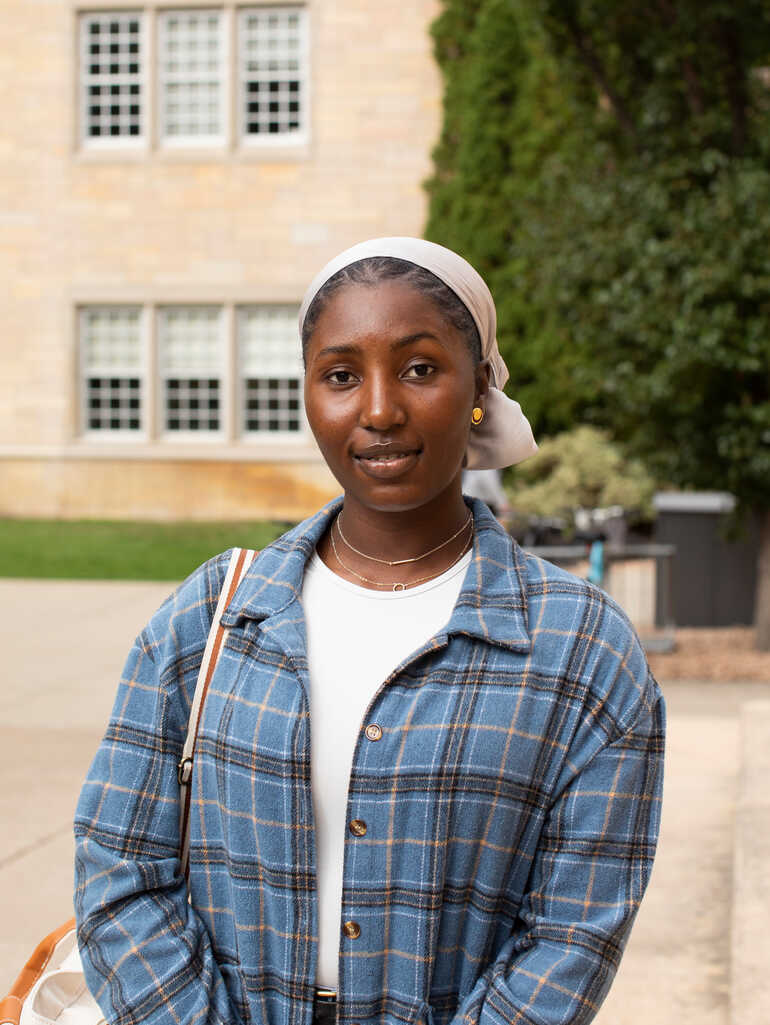
First-generation college student Kadiatu Koroma ’25, who is originally from Sierra Leone, said her mother cried when they learned she’d be receiving the Ryan Companies US, Inc. Endowed Scholarship.
“It just means the world to me,” she said. “I’ll be able to take (what I’ve learned) and find ways to help the BIPOC community and people back home as well.”
First-generation American Javier Romay ’23 J.D., who has family ties to Ecuador and Spain, worked as a personal care attendant before attending the School of Law. He was a recipient of the Michael and Ann Ciresi Endowed Scholarship.
“My scholarship definitely helped relieve the financial stress of law school,” he said. “I was able to focus on academics without the burden of looming debt.”
The bilingual attorney now works at St. Croix Legal Services in Stillwater, Minnesota.
St. Thomas President Rob Vischer was a college scholarship recipient, as well.
“When I was 18, I knew that my mom hadn’t been in a position to save money for my college education, so I was trying to figure out how I could make it work,” Vischer said. “I learned of a scholarship that I would qualify for, and I went to that college because of it. I once even was able to meet the man who funded my scholarship, Patrick Taylor. He believed in me. He made my college education possible, and that unlocked so many doors for me. My life would not be the same without the hope he placed in me.”
The power of higher education
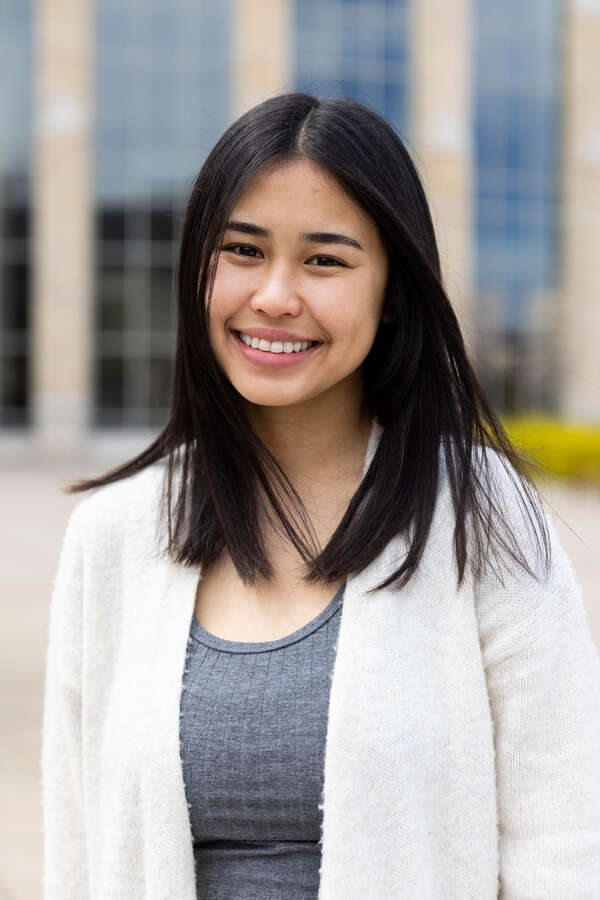
When alumnus Gene Frey ’52 and his late wife Mary started The Frey Opportunity Scholarship in 2008, it was the largest single gift to scholarships ever given to St. Thomas. Since its inception, the endowment has awarded more than 7,000 scholarships. The couple, along with the Sterbenz-Ryan Education Foundation, helped establish the DFC Excellence Continuation Scholarships, which provides full-tuition scholarships for select Dougherty Family College students to pursue a bachelor’s degree at St. Thomas.
For Rose Say ’24, a DFC Excellence Scholarship recipient, the gift meant “I can pursue my goal of becoming an elementary teacher.” Say is now a teacher at the Collaborative School at Maxfield Elementary.
The Freys also created the 2022 Frey Room and Board Grants program, which expands opportunities for students to benefit from residential liberal arts learning experiences, without funding as a barrier. In fall 2021, St. Thomas implemented a two-year residency requirement for first- and second-year students.
“There is strong evidence that living on campus can open the doors to a richer college life. Unfortunately, many of the families and students who would be the beneficiaries of this initiative cannot afford the cost of living on campus,” Gene Frey, a trustee emeritus and recipient of an honorary doctorate of humane letters from St. Thomas, said in 2022. “We saw this unmet need as an opportunity to make a positive difference in the lives of deserving students who will greatly benefit from having the same resident experience as their peers enjoy. We are delighted to be able to do this.”
Another scholarship, the Rory ’86 and Rhonda O’Neill ’88 Endowed Scholars Program, was established in 2023 to invest in and grow a diverse talent pool into careers in the finance and investment management industry. This scholarship supports undergraduate students who demonstrate financial need and who have a strong interest in finance and investment management.
“The financial burden of school can be a significant hurdle, and the O’Neill scholarship has lifted a tremendous weight off my shoulders,” said Jesus Murillo Vazquez ’26. “I can now focus entirely on my studies, free from the worry of balancing work and academics.”
Reasons to give back
Many alumni who donate to scholarship funds cite St. Thomas’ roots as a Catholic university as an important factor.
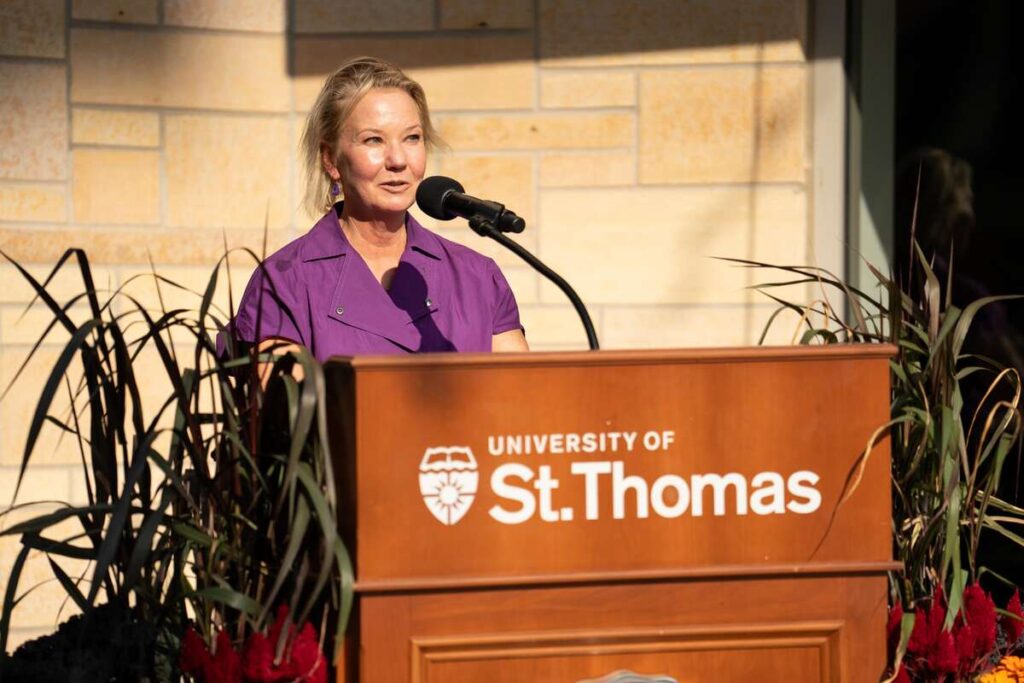
“The class I recall him talking the most about was his theology class and learning about the theology of St. Thomas Aquinas, which he said made a huge impact on the decisions he made in the business he built,” Goldman said about her dad, Gerald Rauenhorst ’48. “The theology grounding he got at St. Thomas he would say is the reason that he lived a life with purpose.”
In 2017, the GHR Foundation gave $50 million to St. Thomas to fund the GHR Fellows Program, providing full-tuition scholarships for first-time, first-year students intending to major in business. To date, 60 students have benefited from GHR Fellowship support, and GHR Fellow alumni are working in organizations and companies such as Ecolab, Target and UnitedHealthcare.
“We developed the GHR Fellows Program as a scholarship gift because we saw that the fundamental way to elevate St. Thomas is through the students,” Goldman said. “St. Thomas is amazing because of its students, so we felt to be true to the intention of the gift, it had to be a scholarship gift.”
Rauenhorst, who passed away in 2014, was committed to giving back to St. Thomas in other ways, from serving on the Board of Trustees for 46 years to being instrumental in the creation of the Minneapolis campus and the School of Law.
GHR Fellow Henry Pike ’26 reflected on the impact of his scholarship.
“Having someone you’ve never met before invest in you and believe in you is this incredible feeling that is motivation to achieve your utmost,” he said. “It’s a reminder that when we all believe in each other, we all succeed.”
The benefits of a ‘twofer’
“If benefactors are considering making a scholarship gift, I would encourage them to think even bigger and more broadly about it,” Goldman said. “I see it as a twofer – you’re supporting a student and you’re supporting the university that you love.”
The Kanthak Scholars Program, launched in 2020 and named after the late Irvin Kanthak ’59, was created to help St. Thomas students reduce tuition costs and room and board expenses.
The Schulze Innovation Scholarship Program, named for Best Buy founder and Chairman Emeritus Richard M. Schulze, a St. Thomas trustee emeritus, is a four-year, full-tuition scholarship designed to nurture undergraduate business students into innovative, entrepreneurial leaders. It provides up to two paid internships and funding to attend regional and national business idea competitions. Since 2018, 70 Schulze Innovation Scholars have received $8 million in scholarship funding.
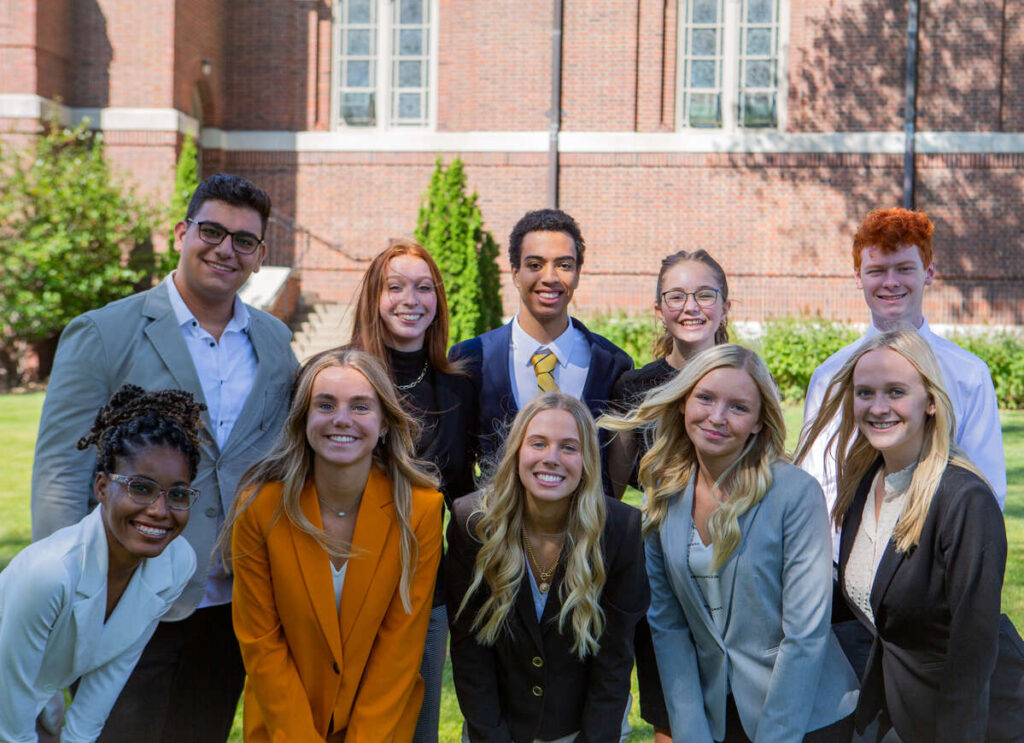
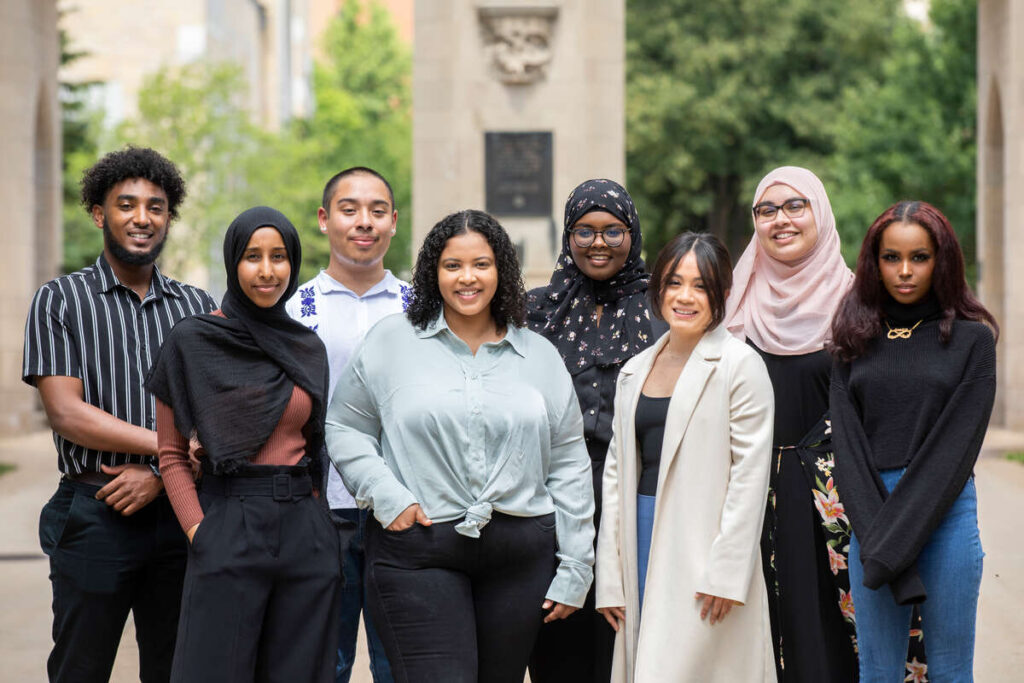
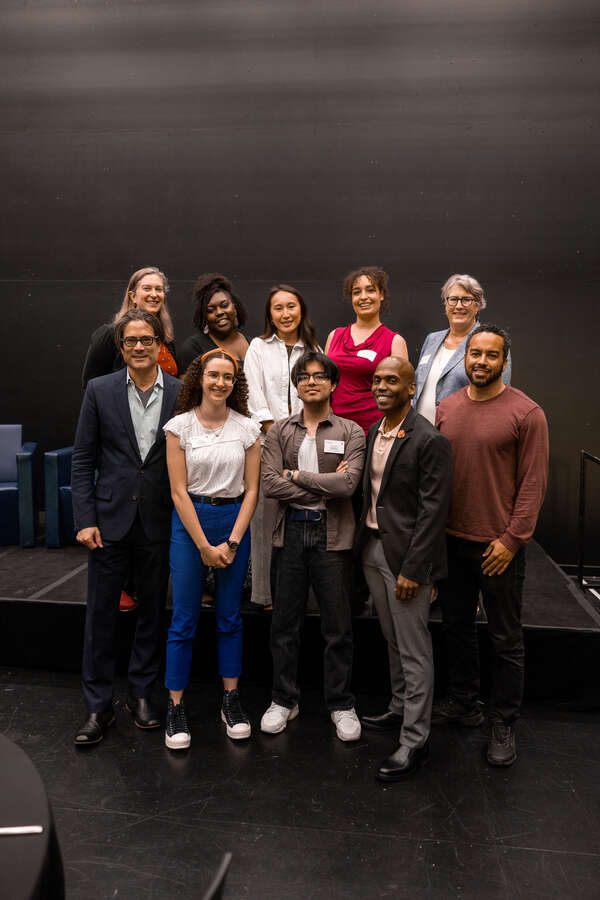
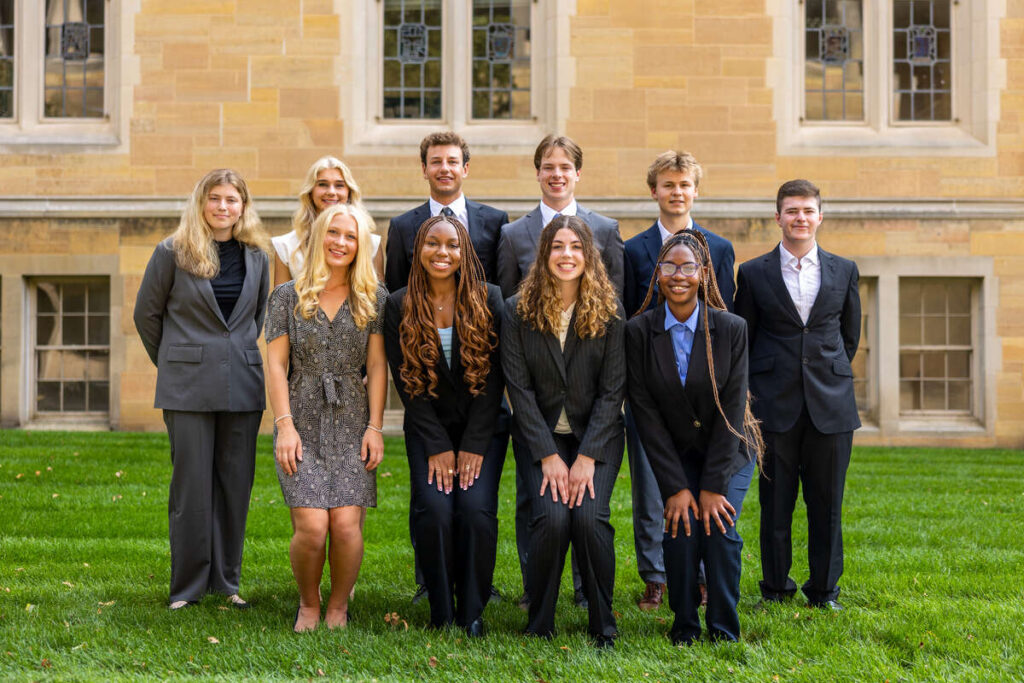
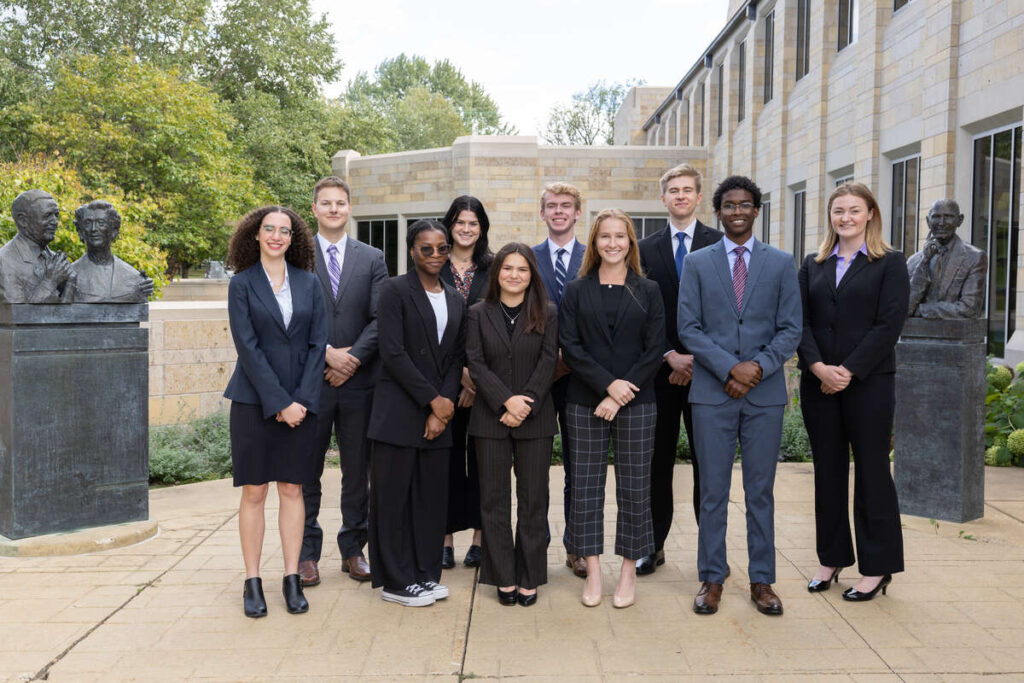
St. Thomas Trustee Michael Dougherty ’66 and his wife Kathy are founding benefactors of Dougherty Family College, which offers a two-year associate degree through a cohort model. It provides two meals a day, a bus pass and a laptop for its scholars.
“A college degree is one of the best ways to beat poverty,” Michael Dougherty said. “My wife, daughters and I want to give motivated, hard-working students the opportunity to succeed in college so they can use their talents and support themselves in the future. One day, I believe these students will be giving back to our community. But for now, this is a way for our family to give back to the community that has been so good to us.”
